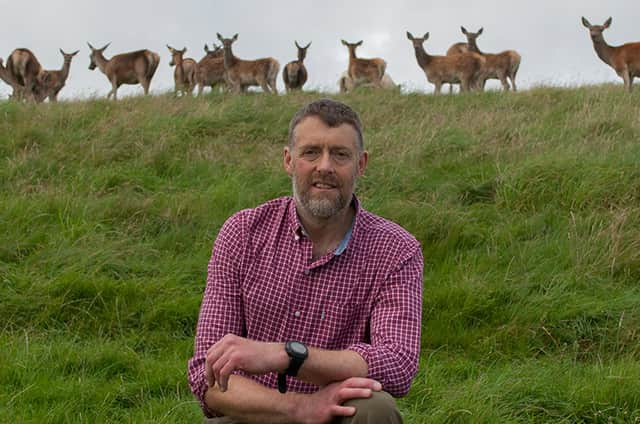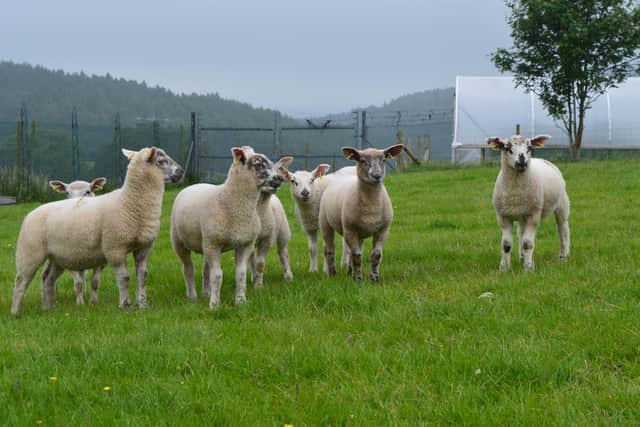Farming can make a positive difference to tackle climate change - Donald Barrie


The first step is evaluation: in livestock systems we measure inputs and outputs (for example, lambs reared per ewe and kg of meat sold) to allow us to estimate efficiency. Grass is the primary “fuel”; practices like rotational grazing increase sward productivity, carbon storage and water retention; but the high energy cost of making winter fodder is only justifiable when well conserved silage gives a palatable feed which can be used to displace cereal-based feeds purchased off-farm. Farming, an industry which is itself highly exposed to the effects of climate change, causes pollution even when done well. We are ever at the risk of a summer deluge with the power to strip away our topsoil, the very base upon which our production depends.
Next comes mitigation: “I still want to fly, but I worry about its impact”, so the airline says “relax”, it’s planting a few trees on my behalf. It’s a partial fix: woodland soaks up carbon until it reaches maturity and is harvested, or in unmanaged environments begins to decay. In ten years, we have planted seven per cent of Glensaugh’s 1,000 hectares with oak and pine and we will plant another ten per cent of the farm in 2022. My lifelong enthusiasm for planting trees has found expression in our addition of woodland to Glensaugh’s canvas, creating environments which are botanically richer and which bring textural change and shelter to our windswept hill foot landscape. Livestock farming and forestry should co-exist and it is appropriate for the Institute to keep livestock farming in the mix as long as society wishes to eat meat and wear woollen clothes.
Advertisement
Hide AdAdvertisement
Hide AdEfficiency and mitigation will only take us so far: farming and forestry are mechanised industries which currently rely on hydrocarbon fuels for support energy. To reach carbon neutrality we must also be able to generate our own fuel. Our planet is energy rich: the sun shines, the wind blows, burns tumble from the hills and the tides ebb and flow, all power which can be harnessed to generate electricity. Glensaugh is windy and enjoys sunny spring weather, but what to do when neither are available? Industry has overcome this problem through pump storage, but our reservoir will be a tank of compressed hydrogen gas, generated by electrolysis of water using surplus electricity. Hydrogen will be our fuel, but it is perhaps better described as a vector: it will allow us to convert one form of energy to another, and to provide raw power on tap when we need it. To develop our vision into a workable plan we are fortunate to have been awarded funding by the Scottish Government’s Community and Renewable Energy Scheme (CARES) to commission a study which will help answer our many questions.


What are the technical barriers and how can we overcome them? Will the installation be safe? Will it be possible to make Glensaugh an off-grid community with a reliable supply of energy for domestic and industrial use? How will we store the hydrogen, and can it be used as an agricultural fuel? Answers will be shared with the wider rural community, policy makers and stakeholders.
The transformation required in our lives is daunting, but land-based industries hold some of the keys in their untapped resources. Our work at Glensaugh will highlight the contribution that the sector can make towards Scotland’s climate and biodiversity targets.
Donald Barrie manages the James Hutton Institute’s Glensaugh Research in the Grampian foothills in north-east Scotland. For more information visit glensaugh.hutton.ac.uk and www.hutton.ac.uk.
Comments
Want to join the conversation? Please or to comment on this article.